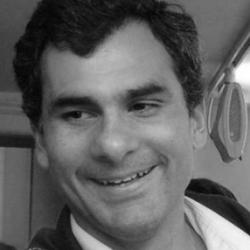Biography
Dr Felipe Hernández is an Architect and University Lecturer in architectural Design, History and Theory. He is also Co-Director of the M.Phil. in Architecture and Urban Studies. Felipe has worked, and published, extensively on Latin America and other areas in the Developing World, including Africa, the Caribbean and South East Asia.
In addition to his academic work, Felipe is Chair of Cities South of Cancer, an interdisciplinary Research Group whose members work on a wide variety of urban issues in Argentina, Bangladesh, Colombia, Indonesia and Mexico. Researchers work in close collaboration with members of the Centre for Urban Conflict Research (UCR) exploring issues to do with globalisation and architecture, poverty and urban informality, urban growth and governance amongst other major themes. The group collaborates with academic, institutions in USA, Latin America, China and Indonesia and also offers consultancy to governmental, non-governmental, and private organisations involved in urban research and development in cities around the world.
Felipe is the author of Bhabha for Architects (Routledge 2010) and Beyond Modernist Masters: Contemporary Architecture in Latin America (Birkhauser 2009). He is also co-editor of Rethinking the Informal City: Critical Perspectives from Latin America (Berghahn 2009) as well as Transculturation: Cities, Spaces and Architectures in Latin America (Rodopi 2005). He is currently co-editing a second volume on Latin American informal settlements for Cambridge Scholars Publishing and writing a monograph on Modern Architecture in Africa and South America.

